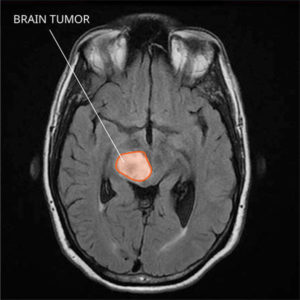 As we get older, we may notice that we're forgetting things, or we're having trouble remembering names, or... And we wonder if we're starting to "lose our mind" and developing dementia.
As we get older, we may notice that we're forgetting things, or we're having trouble remembering names, or... And we wonder if we're starting to "lose our mind" and developing dementia.
A recent study has good news - even in persons labeled as having Mild Cognitive Impairment (MCI), 2 1/2 years later about half had improved and no longer fit the criteria of mild cognitive impairment. Back to normal! (Other studies have similar results.)
The big question is why do so many improve, and why do others get worse?
This study conducted by Columbia University researchers was part of a long-term study looking at aging in older adults (65 years old or older) and living in New York City (thus the study was "community based"). All 2903 participants (white, black, and Hispanic) did not have Mild Cognitive Impairment or dementia at the start of the study (the baseline), were followed for 6 years, and evaluated (including physical and neurological tests) every 18 to 24 months.
After an average 2.4 years follow-up after MCI diagnosis: 12.9% of individuals progressed to dementia, 9.6% declined in functioning (but did not meet the criteria for dementia), 29.6% continued to meet MCI criteria, and 47.9% no longer met MCI criteria. This last group was now "cognitively normal". (!!)
The researchers found that the presence of the APOE4 gene (which increases the risk of Alzheimer's disease) and having more medical problems ("medical burden") increased the risk of MCI. On the other hand, more years of education, more leisure activities (e.g., reading, socializing, taking walks), and higher income decreased the risk of developing MCI. But MCI across several domains, being a carrier of the APOE4 gene, depressive symptoms, and antidepressant use increased the risk of progression to dementia
Bottom line: Older adults should try to be active, get exercise (walking counts!), have a healthy lifestyle, socialize, and be busy - it's good for mental health. Studies also find participation in arts, crafts, and using computers all lower the risk of older adults developing MCI.
From Medical Xpress: 'Mild cognitive impairment' in older age often disappears, study finds
A diagnosis of mild cognitive impairment (MCI) might worry an older adult, who could see it as a stepping stone to dementia. But a new study suggests one does not necessarily lead to the other. ...continue reading "Mild Cognitive Impairment In Older Adults Can Improve"

 Some good news - a recent
Some good news - a recent  The incredibly high use of pesticides in this country, especially when routinely applied to crops, lawns, and residence interiors, is worrisome. Over 1 billion pounds used in the US annually! Not only are there all sorts of environmental effects, including contamination of water, air, soil, but pesticides also have health effects on humans and wildlife. It seems that with each new study,
The incredibly high use of pesticides in this country, especially when routinely applied to crops, lawns, and residence interiors, is worrisome. Over 1 billion pounds used in the US annually! Not only are there all sorts of environmental effects, including contamination of water, air, soil, but pesticides also have health effects on humans and wildlife. It seems that with each new study,  Recently there have been studies with conflicting results about the health benefits or harms from coffee consumption. Overall, it seems like moderate intake is OK and beneficial for adults, but too much may cause harm. And avoid
Recently there have been studies with conflicting results about the health benefits or harms from coffee consumption. Overall, it seems like moderate intake is OK and beneficial for adults, but too much may cause harm. And avoid  The study found that higher levels of physical activity can reduce or remove this association of overweight & obesity and reduced brain blood flow. So if it's not possible to lose weight - then get really physically active!
The study found that higher levels of physical activity can reduce or remove this association of overweight & obesity and reduced brain blood flow. So if it's not possible to lose weight - then get really physically active!